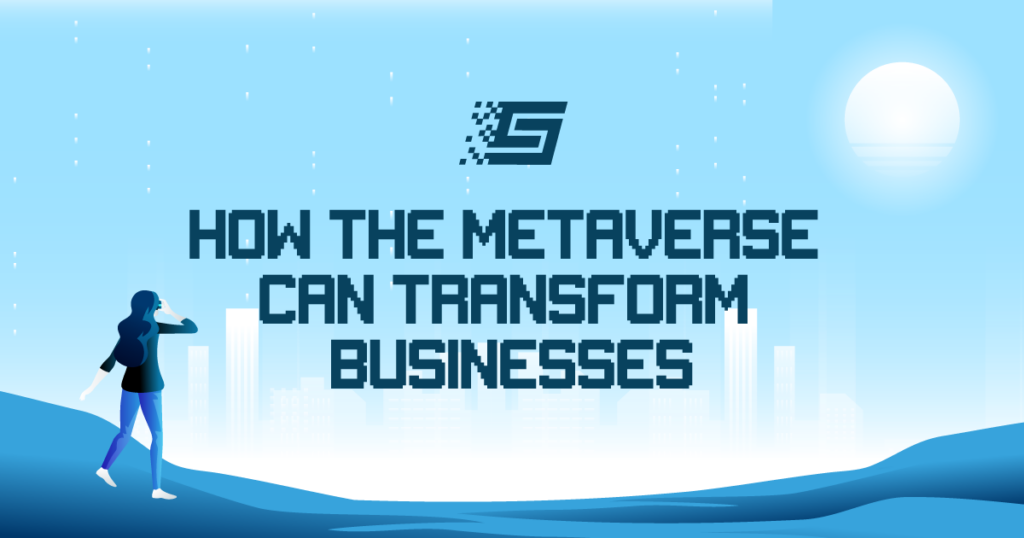
How The Metaverse Can Transform Businesses
Recent headlines about the metaverse have not been encouraging. That is quite a reversal since Facebook rebranded to become Meta not so long ago and announced plans to enter the metaverse. Since then, Meta has laid off more than 11,000 employees as its metaverse bet isn’t paying off. The layoffs occurred after Meta’s stock plunged by 60% in 2022 due to falling advertising revenue while US$36 billion was invested in metaverse development.
Many business leaders mistakenly think the metaverse will mainly impact social media and entertainment. “The metaverse has experienced an explosion of interest similar to the Cambrian explosion of early life forms,” stated Kevin Collins, managing director of the software & platforms industry at Accenture. “A number of clients are exploring the metaverse concept and experimenting with different business applications.”
This article describes various metaverse use cases that CIOs should consider in order to show leadership in demonstrating that there is beef in metaverse applications.
Metaverse Opportunities
Metaverse applications have the potential to transform:
- How businesses interact with their customers, suppliers, and even the government.
- How many aspects of work are performed.
- The ways that companies determine what products and services to offer.
- How products are made in collaboration with suppliers.
- How products are distributed and sold geographically and by channel.
- Methods that companies use to operate geographically distributed organizations.
The top enterprise applications where companies are implementing metaverse concepts are as follows:
- Marketing campaigns for building brand awareness and engagement.
- The professional development of employees and supplier staff for improved learning.
- Internal meetings to enhance employee commitment and retention of information.
- Hosting events and conferences to engage customers and suppliers while eliminating travel requirements.
- Product design using digital twins for shortening development times.
“Just because the metaverse has recently experienced the skeptical portion of the hype cycle, no one should think that it is going away,” Collins noted. “Many organizations, including AWS, Meta, and Microsoft, continue to invest, experiment, and launch various metaverse prototypes.”
The metaverse can be viewed as the next web era. It advances online experiences beyond the traditional 2D web of graphics, text, and video. In the metaverse, end-users will experience a connected 3D, immersive virtual world that they can intuitively engage with through VR (virtual reality), AR (augmented reality), and other interfaces.
Metaverse Applications By Function
The metaverse provides immersive experiences that can greatly improve the following business functions:
- Routine operations will run better and faster when teams can collaborate seamlessly and feel more connected.
- Marketing will orchestrate your customer journey with a rich immersive brand experience that inspires action.
- Sales can be accelerated by immersive experiences that will captivate your audiences to close deals.
- Human resources can reinforce company culture and invigorate your team to build thriving workplaces, enriching employee experiences.
- Product development teams will be able to collaborate easily to develop the next big product or service and host a virtual launch party to share these advances with the world.
- Customer service can elevate what customers experience with new ways of capturing feedback and connecting after a sale is made.
Metaverse Applications By Industry
Metaverse applications are providing immersive experiences in the following industries:
- Healthcare – the metaverse supports delivering various services such as virtual physical therapy, mental health, and remote elder care.
- Surgery – medical professionals are using augmented reality to advance procedures that are currently performed with robots’ help.
- Health & Safety – in most industries, the metaverse helps to reduce accidents by providing realistic virtual reality safety training.
- Manufacturing – the metaverse enables facility design to optimize work in progress, reduce elapsed time to completion, and maintain more consistent quality.
- Real Estate & Construction – the metaverse offers prospects for a more immersive and realistic experience when interacting with properties of interest.
- Fitness – the metaverse facilitates virtual coaching and exercise classes.
- Tourism – the metaverse delivers immersive virtual experiences for historical, inaccessible, or dangerous places.
Through metaverse concepts, these applications can improve product or service quality for customers and increase staff productivity.
Metaverse Implementation Challenges
Companies don’t have to build an entire virtual world to achieve metaverse value. But there are still various challenges that must be overcome before the metaverse is widely adopted, including:
- Consumer interest and acceptance; the metaverse will need to provide sufficient value to achieve utilization beyond the early adopters of anything new.
- Various technical constraints such as bandwidth consumption, compute power of end-user devices, and server software complexity.
- Business models to achieve a return on the investments required to build and operate metaverse applications. These models will likely include subscription fees, virtual real estate fees, virtual product purchases, and advertising.
- The cost of end-user devices, bandwidth, and server computing.
- Policy issues such as identity management, the role of law, respect for privacy, and appropriate content.
- A lack of interoperability standards across end-user displays and virtual world implementations. Stakeholder collaboration and a certain amount of regulatory nudging will typically address this problem.
- A lack of maturity in software development tools. Advances in integrated development environments (IDE) and reusable software libraries should address this limitation sufficiently.
“While the technical and organizational challenges to successful metaverse implementation are very real,” Collins said, “they shouldn’t cause organizations to avoid or defer experimentation.”


